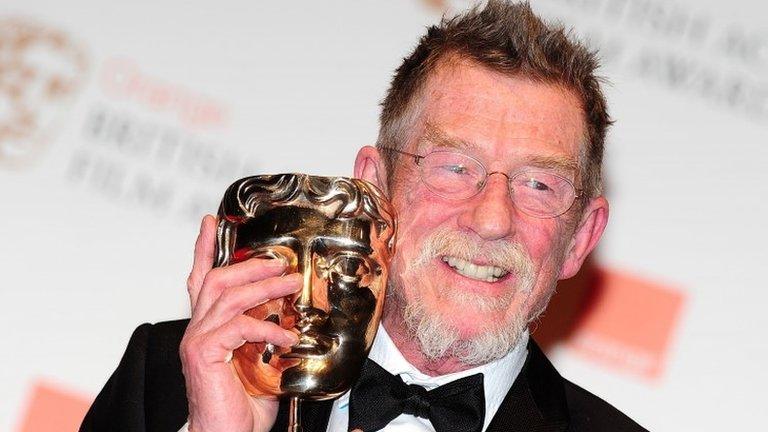Obituary: Sir John Hurt
- Published
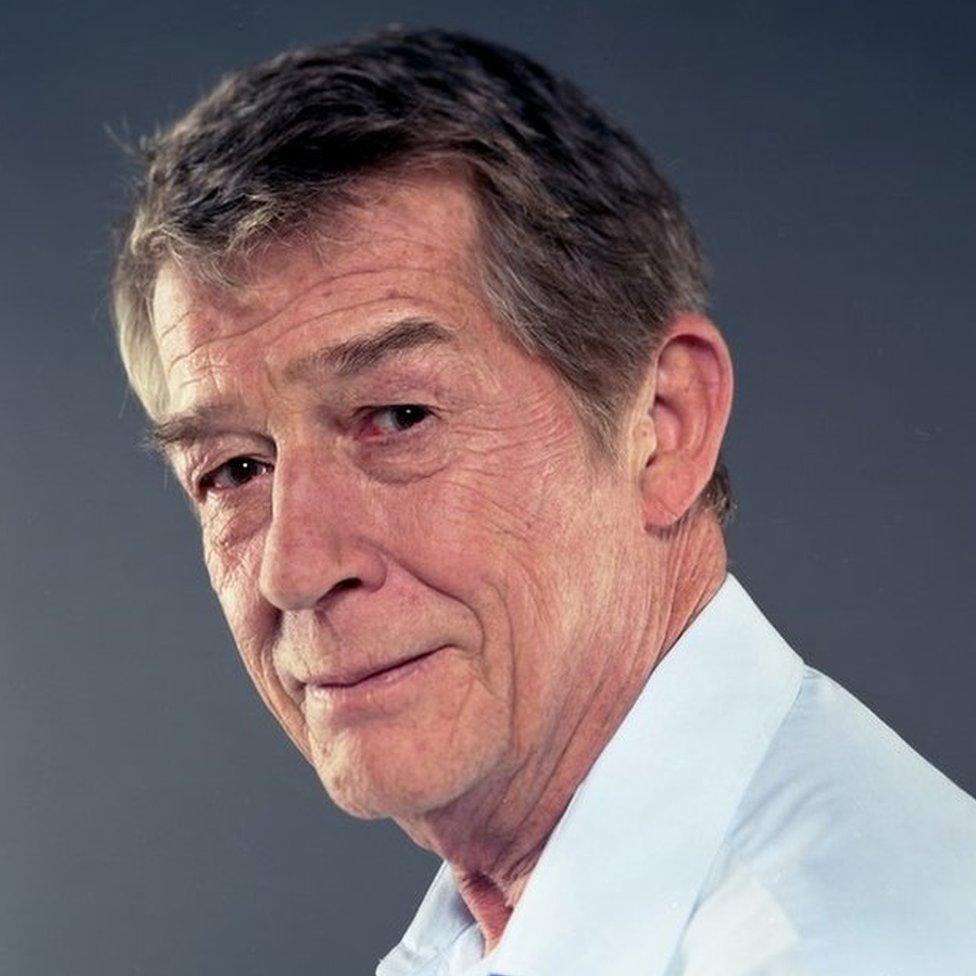
Sir John Hurt was one of Britain's best-known and most versatile actors.
Over six decades, his distinctive voice and towering presence saw him much in demand for a variety of roles.
He successfully combined classical theatre with television and Hollywood blockbusters.
The death of his character in the film Alien has often been voted as one of cinema's most memorable moments.
John Vincent Hurt was born on 22 January 1940 in the town of Chesterfield in Derbyshire.
His father, originally a mathematician, had taken holy orders and when Hurt was five, became parish priest at Woodville on the Derbyshire-Leicestershire border.
His parents were reluctant to let him mix with local children, thinking them common, and although the family lived close to a cinema he was not allowed to go to see films.
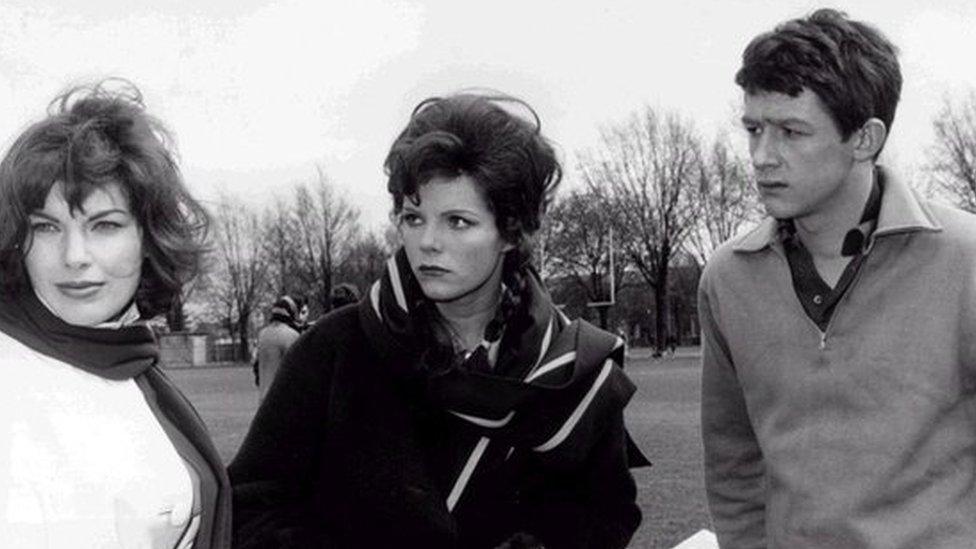
His small role in The Wild and the Willing earned him £75 a week during shooting
His first taste of acting came at his prep school in Kent, an establishment Hurt later described as "so high Anglo-Catholic it was flying".
He played the part of a girl in a production of Maeterlinck's The Blue Bird, a tale of two children seeking happiness with the aid of a fairy.
"I felt an extraordinary feeling that I was in the place that I was meant to be," he recalled.
Hurt later revealed that he had been sexually abused by the school's headmaster.
Scholarship
When he was 12 his father was appointed to a church in Grimsby, and the family moved to Lincolnshire.
His parents, keen to see him in what they considered a respectable job, suggested he become an art teacher and he spent a short time at St Martin's School of Art in London
Money was a constant problem and on occasion, he persuaded some of his friends to pose nude and sold the portraits.
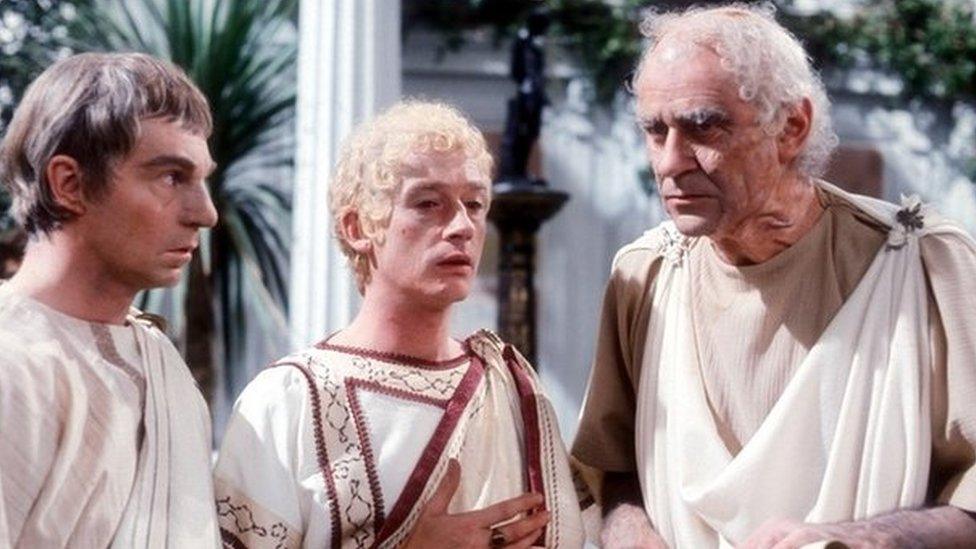
Hurt (c) with Derek Jacobi and George Baker in I, Claudius
One of his subjects, then completely unknown to him, was Quentin Crisp, whom Hurt would later portray.
In 1960 he gained a scholarship to the Royal Academy of Dramatic Art, a move that finally won his parents round and set him off on an acting career.
He fell in love with French cinema while studying in London, once going to see Jules et Jim every Sunday for seven weeks.
His somewhat bohemian existence persuaded him to become an agnostic, something that shocked his parents.
London stage
However, his brother's almost simultaneous announcement that he was becoming a Catholic rather took the sting from his parents' concerns over Hurt's lack of belief.
"That was the blackest day in the family history ever; that was my brother joining the antichrist."
When he finally graduated, he walked straight into a small role in a 1962 film, The Wild and the Willing, which earned him the princely sum of £75 a week.
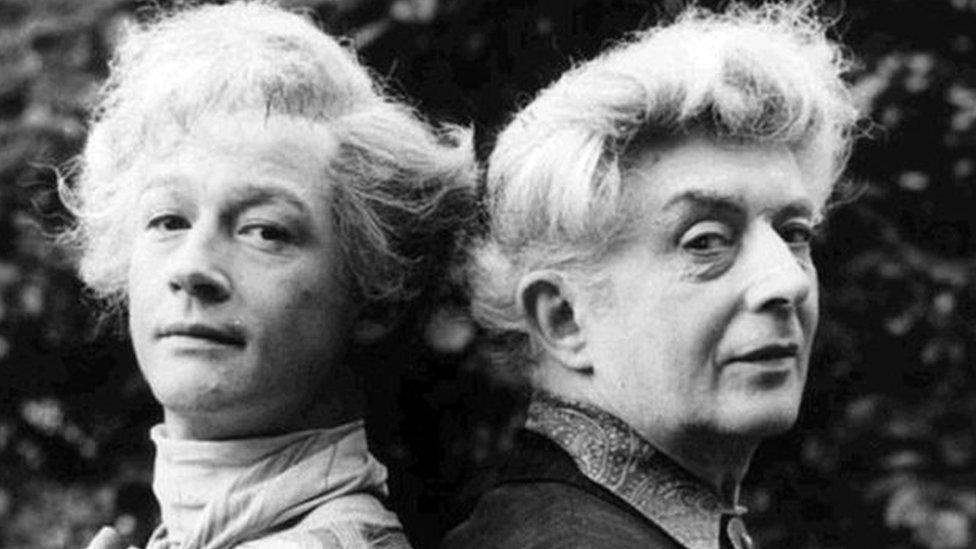
John Hurt in the character of Quentin Crisp
Hurt began performing on the London stage and married actress Annette Robertson, although the union lasted less than two years.
His first significant film role was as Richard Rich in A Man for All Seasons, Fred Zinneman's biopic of Thomas More, based on the play by Robert Bolt.
While the part of Rich was not a major one, the success of the film - it won six Oscars - pushed him into the spotlight.
Five years later he was nominated for a Bafta, as Timothy Evans in 10 Rillington Place, the true story of one of the greatest miscarriages of justice in British legal history.
Colourful
Evans, wrongly hanged for the murder of his daughter, was the sort of vulnerable character that would become something of a speciality for Hurt.
For a time he gained something of a reputation as one of acting's hellraisers, mixing with Peter O'Toole and Richard Harris.
He finally won a Bafta in 1975 for his portrayal of Quentin Crisp, in The Naked Civil Servant, an ITV adaptation of Crisp's autobiography,
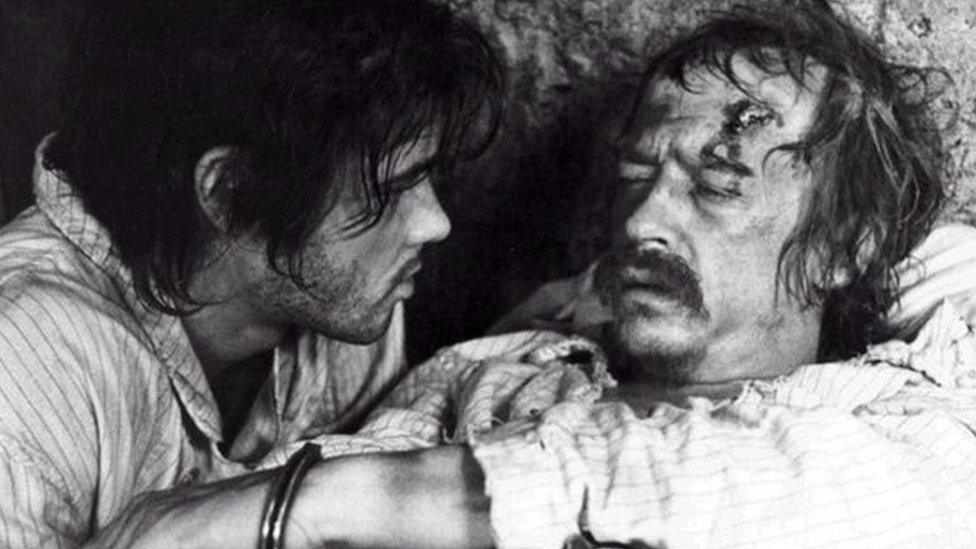
Hurt starred with Brad Davis in the harrowing film Midnight Express
His depiction of the colourful Crisp, who flaunted his homosexuality at a time when gay sex between men was illegal, won much praise.
"It changed the business's perception of me as a performer," he later said. "I was warned not to do it - they said you'll never work again, it was such a dodgy subject at the time."
Crisp himself expressed delight at Hurt's performance. "I told Mr Hurt it was difficult for actors to play victims, but he has specialised in victims."
He went on to reprise the role in 2009 in a dramatisation of Crisp's second autobiography, An Englishman in New York.
Scariest moments
Other impressive performances followed. He played the tyrannical Roman emperor Caligula in the BBC adaptation of I, Claudius.
And in 1978 he narrowly missed out on an Oscar for his role as heroin addict Max in Alan Parker's controversial film, Midnight Express.
A year later he played a crew member in Alien, becoming a host for the eponymous creature.
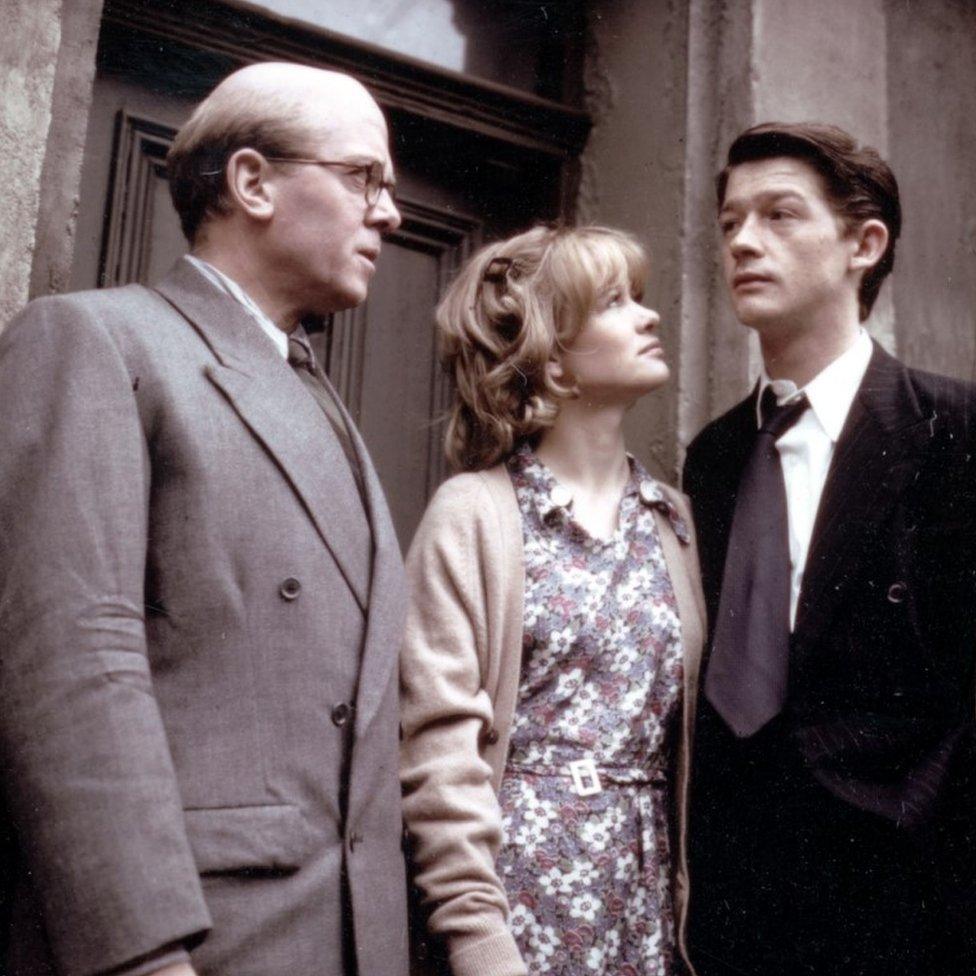
He made a speciality of playing victims like Timothy Evans in 10 Rillington Place
The scene where the tiny creature bursts out of his chest has often topped the polls of the scariest moments in film.
In what many consider his greatest role, he played the hideously deformed Joseph Merrick in the film The Elephant Man.
Wearing prosthetic make-up that took eight hours to apply, Hurt excelled in the heartbreaking role of an intelligent man imprisoned in a body that repelled other people.
"Merrick was made into a freak," Hurt said. "A lot of my career is tied up with victims, people who are ostracised."
Convincing
Tragedy struck in 1983 when his partner of 16 years, Marie-Lise Volpeliere-Pierrot, died after a horse-riding accident.
The following year, Hurt married American actress Donna Peacock.
That year Hurt again played a victim, this time Winston Smith in a film adaptation of George Orwell's 1984.
Critics were almost unanimous in their praise, with Roger Ebert declaring: "John Hurt, with his scrawny body and lined and weary face, makes the perfect Winston Smith."
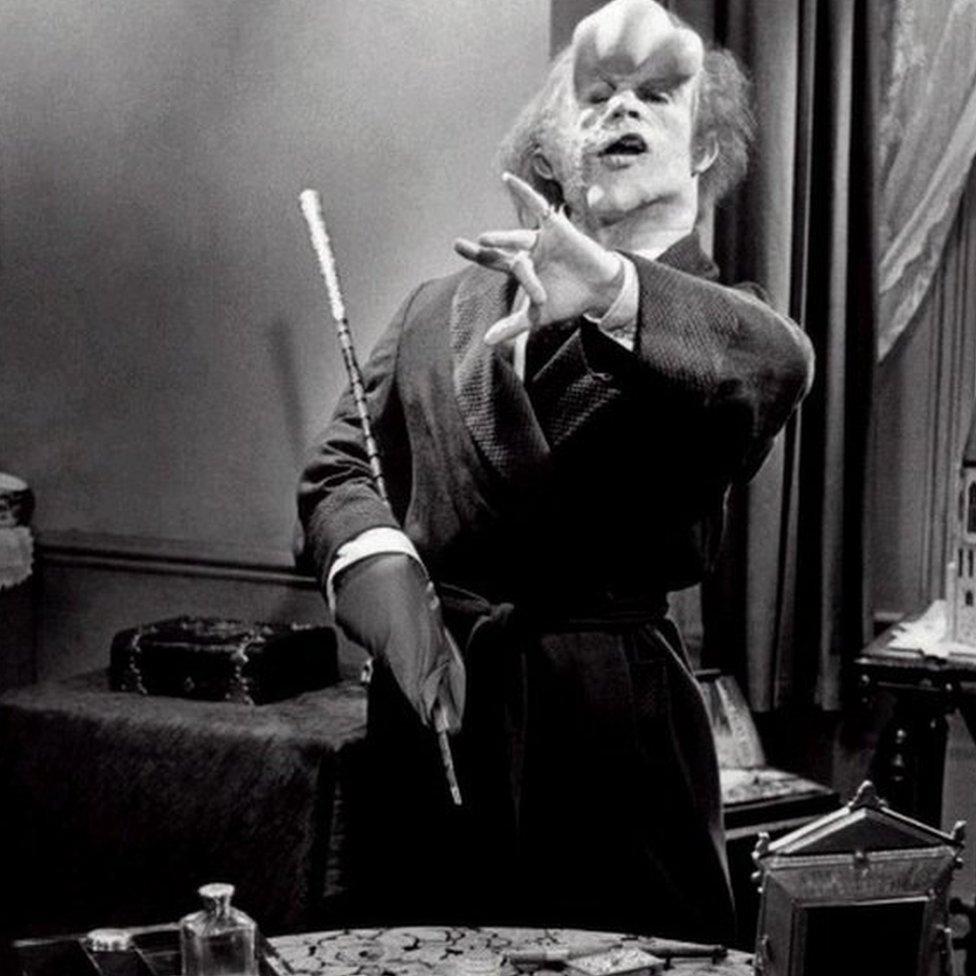
Hurt excelled in the role of Joseph Merrick
Over the following decades Hurt's workload remained prodigious, although he played fewer leading roles.
He was a convincing Alan Clark in a BBC adaptation of the philandering politician's diaries, and a memorable Control in the film version of Tinker, Tailor, Soldier, Spy.
His distinctive voice, "alternately honey and acid and sometimes a mixture of the two", as one critic put it, was much in demand.
Among the characters he voiced were the rabbit, Hazel, in Watership Down, and the Great Dragon in the BBC children's programme Merlin.
Memorable performances
In 2013 he appeared in Doctor Who as the War Doctor, a hitherto unseen incarnation of the character.
Hurt's career saw him appear in more than 120 films as well as numerous stage and television roles. He was as much at home in the theatre as he was in front of a camera.
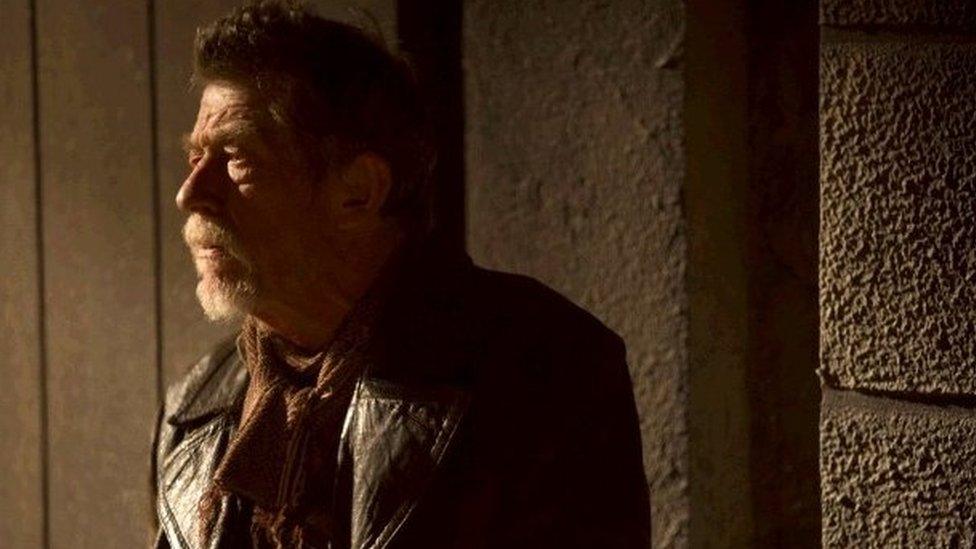
He was menacing as the War Doctor
While many of his contemporaries picked and chose the roles they would play, Hurt cheerfully took anything that came along, no matter how small.
The film critic and historian Geoff Andrew asked Hurt how he managed to regularly turn in such memorable performances.
"The only way I can describe it is that I put everything I can into the mulberry of my mind and hope that it is going to ferment and make a decent wine.
"How that process happens, I'm sorry to tell you I can't describe."
Hurt is survived by his two sons and his fourth wife, of 12 years, Anwen Rees-Myers, a former actress and classical pianist.
- Published28 January 2017
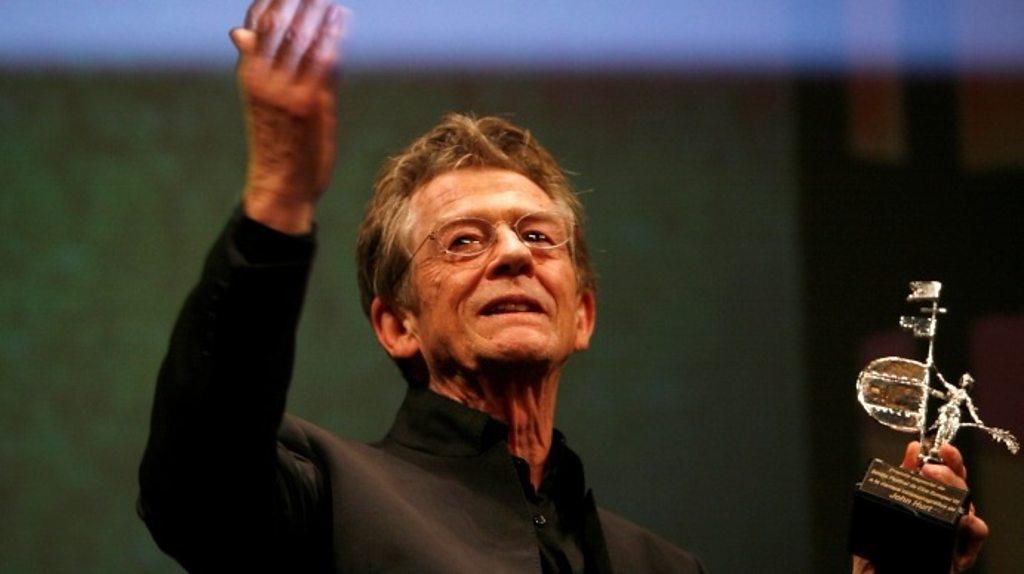
- Published28 January 2017
